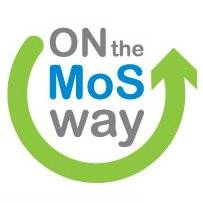Independent benchmark testing on behalf of the Chinese government has identified one method as an accurate methodology for portable ballast water sampling.
The Single Turnover One Pulse (STOP) methodology used by Chelsea Technologies’ FastBallast Sensor, was independently verified by researchers from the Environmental Protection & Energy-saving Technique Research Centre of China.
“It is essential that compliance can be accurately assessed by both shipowners and port authorities, providing assurance that the BWTS is operating correctly,” said Dr Brian Phillips, managing director, Chelsea Technologies Group.

Independent benchmark testing on behalf of the Chinese government has identified one method as an accurate methodology for portable ballast water sampling.
The Single Turnover One Pulse (STOP) methodology used by Chelsea Technologies’ FastBallast Sensor, was independently verified by researchers from the Environmental Protection & Energy-saving Technique Research Centre of China.
“It is essential that compliance can be accurately assessed by both shipowners and port authorities, providing assurance that the BWTS is operating correctly,” said Dr Brian Phillips, managing director, Chelsea Technologies Group.
“Accurate portable ballast monitoring eliminates the risk of any ambiguity over testing results, protecting shipowners from potentially significant fines, delays in port, and the reputational damage that would result from non-compliance.”
High accuracy
During the verification process, rigorous benchmark testing compared FastBallast-generated cell densities with microscopy-based cell counts using the FDA/CMFDA staining method and included algal species from freshwater, brackish and seawater environments.
FastBallast was found to provide a correct assessment of ballast water compliance with a 99% accuracy rate, with turbidity and high baseline fluorescence having a negligible impact on the reported cell density.
Recently Saudi Aramco’s in-house marine biology experts also identified FastBallast as an accurate solution in the market for the sampling and testing of ballast water.
The technology is now being used to conduct spot checks undertaken by third-party sampling companies.
As well as its extensive experience in Saudi Arabia, CTG is in discussion with leading port authorities worldwide and work is underway with regulators and third-party protocol testing institutions to ultimately agree and publish robust, portable ballast water testing standards.
Source: Greenport

